Thin is not my enemy.
For about a year and a half I was a playwright. Since my teens I’d struggled with the fact that my writing seems to be unpublishable. Somehow I got this idea in my head that playwrighting would be different.
I thought, playwrights push the envelope and there are people in the theatre community actually interested in producing edgy and thought provoking plays.
So, I decided I would write a play.
About this same time I read two important books about Fat Acceptance. “Fat?So!” by Marilyn Wann and “Diet Myth” by Paul Campos.
Naturally, I decided the play I was going to write would be about a Fat Acceptance Activist. And the plot would be about her best friend deciding to get gastric bypass surgery.
After finishing my first draft, I found a local playwriting group. It was one of those kismet moments, where everything just seemed to come together.
The group was run by a playhouse that focused on producing works by local playwrights. I started attending meetings and, eventually, it came time to do a reading of my play about fat acceptance.
The actors sat on stage in row, script in hand, and read through my play. It was thrilling hearing my words read and, once the reading was over, I was eager to get a critique from the audience.
There’s this one willowy actress, who was reading a characet described as a “thin girl.” The actress looked like she was about to cry as she asked me why her character was so evil.
I was stumped. I didn’t know what to say. Thinking back, it seems silly that I didn’t see what I was doing. The advice for new playwrights is to be frugal with your characters. There were seven characters in my play and two of them were thin girls.
And, sure, I wrote both of the “thin girl” characters as mean. One of the thin girls was outwardly mocking and the other was subversively promoting a pro-diet agenda.
I wasn’t intending to portray that ALL thin girls are mean. Or that all thin girls are pro-diet. But, within the context of my play, that’s exactly what I did.
I was so focused on the dramatic structure of the play that I unintentionally portrayed a biased viewpoint.
To this day I remember the look on her face. She looked so wounded. Like I was saying something about her personally.
So, I had to ask myself, “Do I think thin is the enemy?”
Without hesitation, the voice in my head says, “No. I don’t.”
Yes, I believe fat is a marginalized group. That’s why we have the fat acceptance movement. But that doesn’t mean thin people are unaffected by the issues of size discrimination.
Thin girls struggle with body image just like fat girls do. Thin girls hear the same super critical messages about their bodies.
More importantly, thin girls are people too. They have the ability to empathize and understand whatever descimination I suffer as a fat girl.
I may have people mocking me on the streets but maybe that willowy actress has a mother that put her on a diet when she was ten. Maybe her whole life is about staying thin because she’s terrified of suffering from the same kinds of discrimination I’m trying to stop.
I certainly don’t want to promote the idea that I’m “anti-thin” and or that “all thin people are against me.” That’s not what I believe at all.
About six months after my fat acceptance play was read, the owner of the playhouse announced the plays that would be produced for the next two years. My play was not on the list.
One of the women, who was well established with the group, asked why my play about fat acceptance wasn’t in the lineup. The playhouse owner made a face and moved to the next topic on his agenda.
This dismissive look came after months of me patiently waiting. My plays kept being passed over on the reading schedule. Other plays got their second and third reading, as I begged for a first.
The moment pretty much ended my career in the local theatre scene. But it was a stepping stone in my career as a fat acceptance activist.
Sure, it would have been nice to be a playwright. But I took something from the experience. A lesson about examining my own biases and about being willing to see my allies. Maybe not as fabulous as my name in lights but still well worth it.


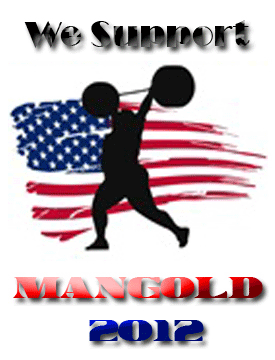

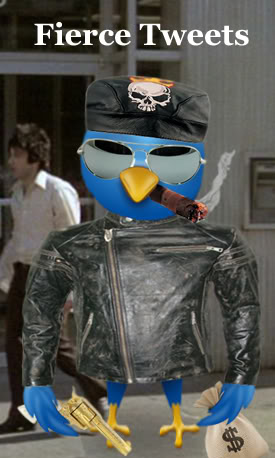



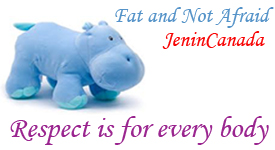

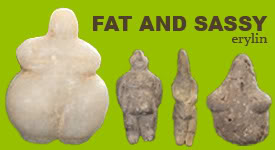
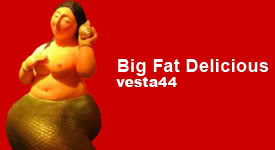

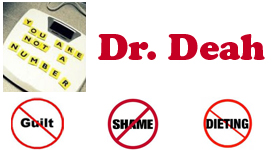


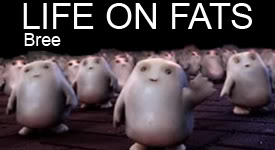
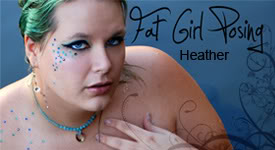


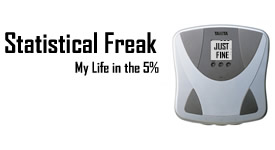
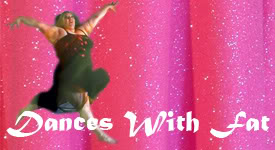
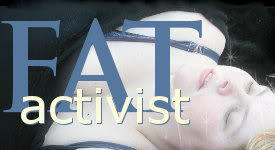
Well said and thank you for saying it. I run into the attitude occasionally on my thread that, because I’m fat accepting and promoting health at every size, that I must hate on thin people, and/or that I think all skinny women are bitches. I’ll be posting a link there to this one!
JeninCanada -
Thanks! It’s true that some think you have to be either/or, which is silly. I’m for size diversity. Not thin hating.
Although, personally, I do prefer a curvier figure on a woman and a beefier figure on a man. But I don’t think the world should adopt my preference.
It’s definitely an easy pitfall for someone who is learning about fat acceptance. And I think it has become assumed by society in general the fat acceptance activists are anti-thin. That’s about as ridiculous as the assumption that fat acceptance activists are anti-health. But it’s based on the behaviors and attitudes of some who aren’t able to move past that “us or them” mentality that defines much of this country.
I wonder what kind of play you would write this time around.
Peace,
Shannon
atchka -
I was never anti-thin. So, if I were to write a second play, the content of the play wouldn’t be any different.
It was only my second attempt at a full length play, so the first lesson to be learned was about making sure my characters are well fleshed out. Even bad characters need positive traits, in order to not come off as one-dimensional.
The second lesson was about trying to be sensitive to more than just people in FA. Even seeming like I’m thin bashing goes against my goals of tolerance for all.
I suppose the word bias at the end of my post may have come off as confusing. I was meaning “bias” in the “limit of my perspective” way, not in the “my own bigotry” way.